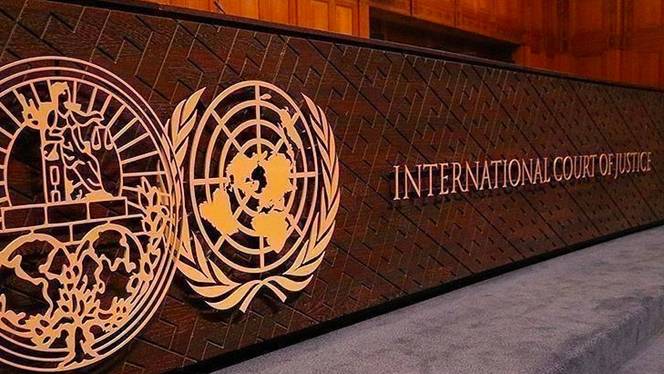Azerbaijan asked the UN’s highest court on Monday to drop a case brought by its Caucasus neighbour Armenia accusing it of ethnic cleansing and violating a UN anti-discrimination treaty.
The legal dispute stems from long-standing tensions that culminated in a war over Nagorno-Karabakh in 2020 that killed more than 6,600 people. The region is within Azerbaijan but has been under the control of ethnic Armenian-backed forces since the war ended in 1994. Baku’s forces recaptured the mountainous region in September in a lightning-quick military operation that forced most ethnic Armenians to flee to Armenia.
Last month, Armenia’s prime minister said the Caucasus state needed to quickly define its border with Azerbaijan to avoid another round of hostilities.
Armenia first filed a discrimination lawsuit with the UN International Court of Justice (ICJ) – also known as the World Court – two years earlier, in 2021, accusing Azerbaijan of violating the Convention on the Elimination of All Forms of Racial Discrimination (CERD).
The case accuses Azerbaijan of glorifying racism against Armenians, authorising hate speech against Armenians and destroying Armenian cultural sites – all charges that Baku denies. Azerbaijan subsequently filed a lawsuit against Armenia, accusing it of discrimination and ethnic cleansing against Azerbaijanis and violating the same treaty.
International law professor Stefan Talmon, representing Azerbaijan, said that Armenia “never gave negotiations a chance.”
On Monday, Azerbaijan’s Deputy Foreign Minister Elnur Mammadov told the court that most of Armenia’s complaints are related to the armed conflicts around Nagorno-Karabakh and are not covered by the anti-discrimination treaty. He also accused Armenia of failing to engage in real negotiations before bringing the case to court. Mammadov said:
Armenia’s application misuses the (treaty) and tries to escape its obligation to attempt settlement of its dispute with Azerbaijan by way of negotiation before invoking the court’s jurisdiction.
Armenia will respond to Azerbaijan’s objections on Tuesday. Both states have filed legal objections to each other’s case, which will be considered in the next fortnight.
Last November, the court took extraordinary measures in Armenia’s case, ordering Azerbaijan to allow the return of ethnic Armenians who fled Nagorno-Karabakh in September.
Armenia accuses Azerbaijan of ethnic cleansing. Azerbaijan says it has pledged to ensure the safety of all residents, regardless of national or ethnic origin, and that it did not force the ethnic Armenians to leave Karabakh.
The ongoing hearings will deal only with legal challenges to the jurisdiction of the UN International Court of Justice and will not address the merits of the discrimination claims. The final judgement in both cases could drag on for years, and the ICJ has no way of enforcing its decisions.
